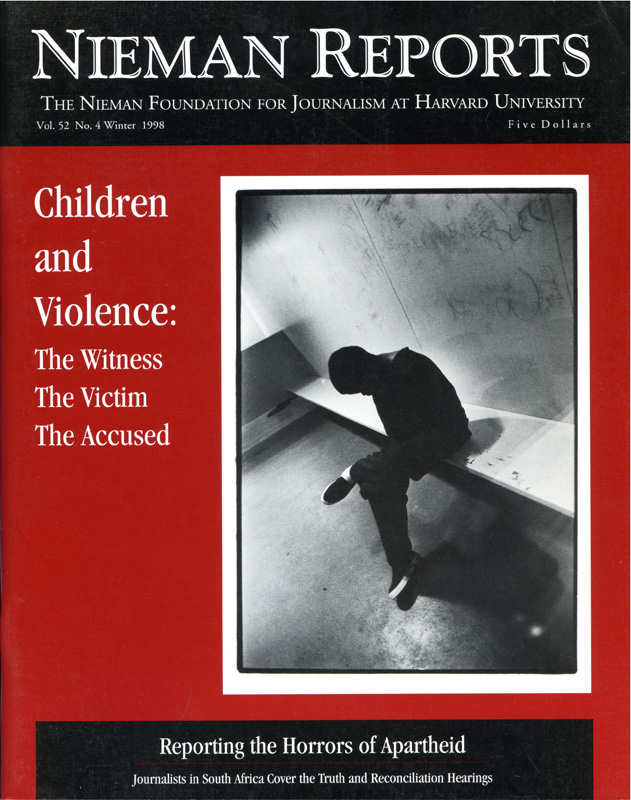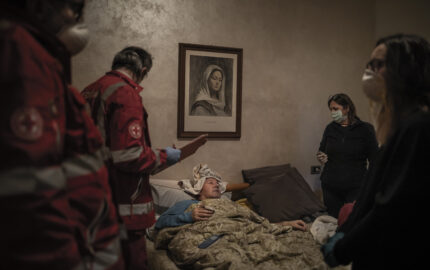
But being open about its leanings did not translate into a willingness to be open with the Commission. Neither the Afrikaans spokesmen nor its leaders would agree to appear and talk about any of this.
To fully understand this silence, one needs to briefly look at history. The roots of the four existing Afrikaans newspapers in South Africa—Die Burger in Cape Town, Die Volksblad in Bloemfontein, Beeld in Johannesburg and Rapport (national Sunday)—go back to the second decade of this century when the Afrikaner nationalists who formed the National Party were instrumental in starting Die Burger to provide a mouthpiece for the new party.
A holding company, Nasionale Pers, was formed. The company and the newspapers and magazines they created were, from the outset, financially independent from the party. Although there were close ideological ties, the party at no stage held editorial or managerial control. At certain points in history, the papers sharply differed from the party, but the underlying relationship remained firm.
For a time, the editor of Die Burger, for example, regularly attended meetings of the parliamentary caucus of the National Party. This practice was terminated during the 1950’s by the legendary Piet Cillie, then Editor of Die Burger and a highly respected and influential thinker in National Party—and Afrikaner—circles. Editors of Die Burger continued to attend meetings of the head council of the National Party in the Cape province as non-voting members until well into the 1980’s. Beeld (est. 1974) and Rapport (est. 1970) had less close ties with the NP than Die Burger and Die Volksblad. They nevertheless supported the NP in all elections.
Other Afrikaans newspapers and press companies existed and their relationship with the National Party was not dissimilar to that of the Nasionale Pers papers. However, these newspapers folded and Perskor, the Afrikaans company that owned them, went bankrupt in 1998.
Towards the late 1950’s and early 1960’s, the papers in the Nasionale Pers stable started to question aspects of the NP’s apartheid policy. When in the early 1960’s Hendrik F. Verwoerd, the then NP prime minister, stripped the Cape coloreds (people of mixed origin) of their voting rights, Die Burger under Piet Cillie openly clashed with Verwoerd and the NP. And then in the late 1980’s, Beeld urged the government to release Nelson Mandela from prison and to scrap petty apartheid laws on segregated residential areas, public amenities and relations across the color bar. All the while, the newspaper’s support for the party in elections remained firm.
Against this backdrop, it should have been no surprise that the Afrikaans press leaders would view the TRC with much trepidation and apprehension. However, in the news columns of the Afrikaans papers, coverage of TRC’s proceedings was extensive and generally fair. Many readers of the Afrikaans newspapers despised the TRC and its Chairperson, Archbishop Desmond Tutu, but they generally read the stories about the atrocities, the death squads and other abuses of the apartheid era.
Editorial comment in the majority of the Afrikaans papers was highly critical of the TRC, especially in Die Burger and Rapport. They accused the TRC in emotional language of a lack of balance and of severe prejudice against the Afrikaners and their institutions. On the editorial pages, the Commission was scathingly referred to as “Tutu se bieg en liegkommissie” (Tutu’s Commission of confessing and lying).
Editorials and political columns branded the Commission a “witch hunt” against Afrikaners. Allegations of undue sympathy for the ruling African National Congress (ANC) were leveled at the Commission which, according to these papers, resulted in a lack of will by the TRC to investigate abuses of human rights in ANC ranks. Beeld was the only Afrikaans newspaper that supported the TRC process. Although critical of some controversial TRC actions, it urged Afrikaner institutions to participate in Commission proceedings.
In September 1997, when the TRC invited the media and media companies to testify at special TRC hearings on the role of the media in the period under investigation, Naspers, as Nasionale Pers had become known by then, refused. Instead, they handed the Commission two published books, extensively documenting the history of the company over nearly nine decades, as well as a written submission on the origins and nature of the relationship between Naspers and the NP.
The decision by the Naspers management not to appear led to a disagreement between management and certain journalists in the group. After lengthy internal deliberations, management granted permission to journalists to make submissions to the Commission “in their individual capacities.” A group of some 130 current and former Naspers journalists presented the Commission with a statement in which they, “in their individual capacities,” acknowledged the close ties between their newspapers and the NP. They stated that although they themselves were never party to human rights abuses, they acknowledged the role of the papers in creating a climate and a political dispensation which made such abuses possible.
The statement also acknowledged neglect in that the journalists too readily believed the denials of the apartheid government and did not thoroughly pursue allegations when they surfaced. The statement conceded that the Afrikaans press played a significant role in softening apartheid and in efforts to change the system from within. But they acknowledged that recognition should be sought at a different forum.
Tutu welcomed the action of the 130 Naspers journalists while, in a public statement, the management of Naspers denounced the content of the journalist’s submission. No one, however, was fired.
It is well known that Tutu and other ranking members of the Commission were disappointed by the hostility shown towards the Commission by papers such as Die Burger and Rapport. Tutu also expressed disappointment at the attitude of certain other Afrikaner institutions towards the Commission.
His disappointment is understandable. Participation by significant Afrikaner institutions would have enhanced the Commission’s legitimacy (as well as that of its findings) in the Afrikaans community. Their absence of participation did not, however, derail the process or significantly alter the impact the report is having.
The TRC process largely succeeded to lay bare South Africa’s apartheid past to many ordinary Afrikaners who, for a very long time, had no idea what was done by agents of the apartheid government to maintain white minority rule. The testimonies before the TRC of ordinary black South Africans who were victims of the system were extensively covered in the Afrikaans papers, especially in the early phases.
Had it not been for the TRC, many Afrikaners (and other white South Africans) would never have known about the misdeeds and, perhaps more significantly, would never have heard a victim of apartheid telling his or her story. Afrikaners and some of their newspapers may not have liked the TRC but, like it or not, reporters at these papers told them the stories and many of their readers read them. What this means is that as the Truth and Reconciliation hearings come to an end, few in South Africa can truthfully say: I did not know.
Tim du Plessis, Nieman Fellow 1993, is Deputy Editor of Beeld. He was one of the Naspers journalists who made a statement to the TRC.


